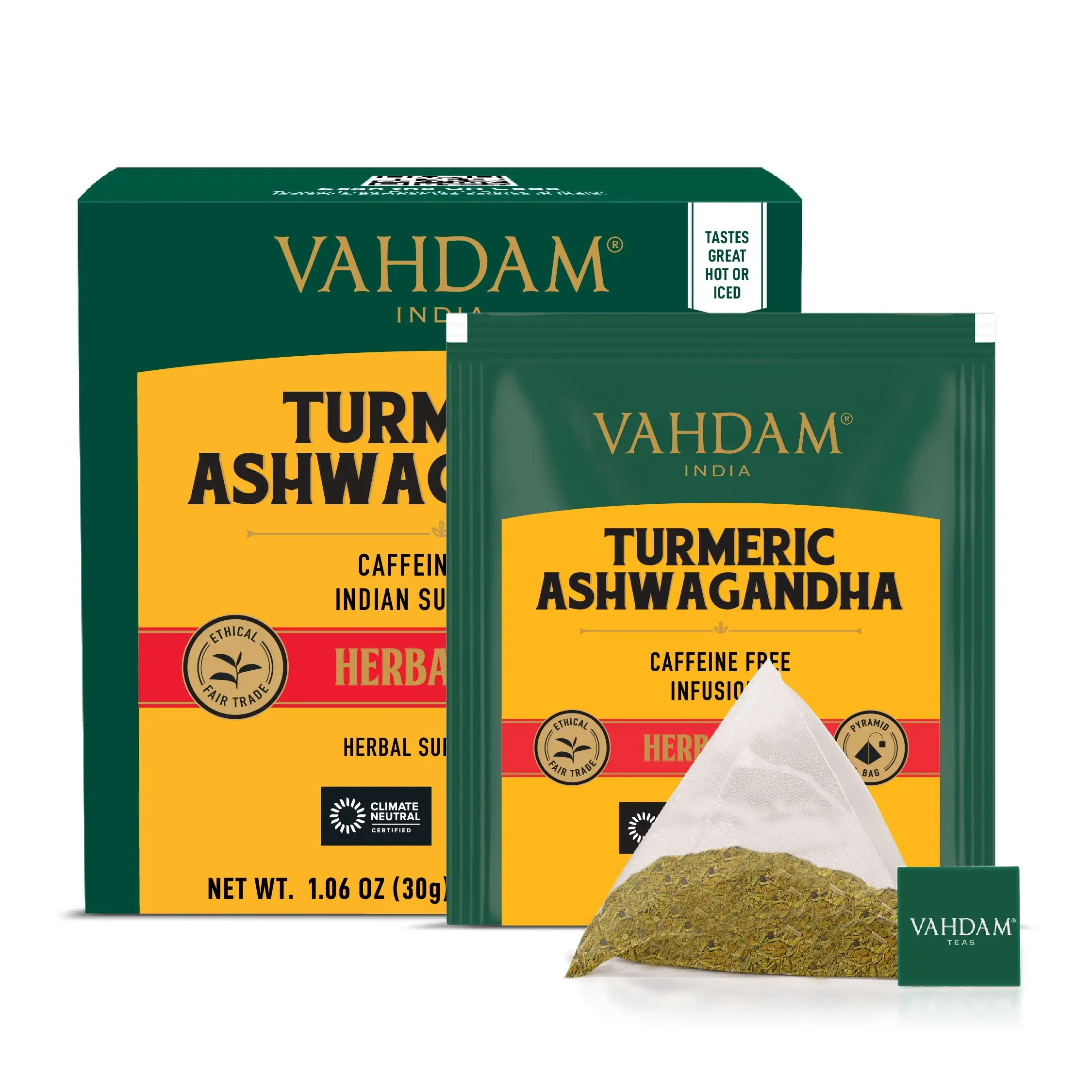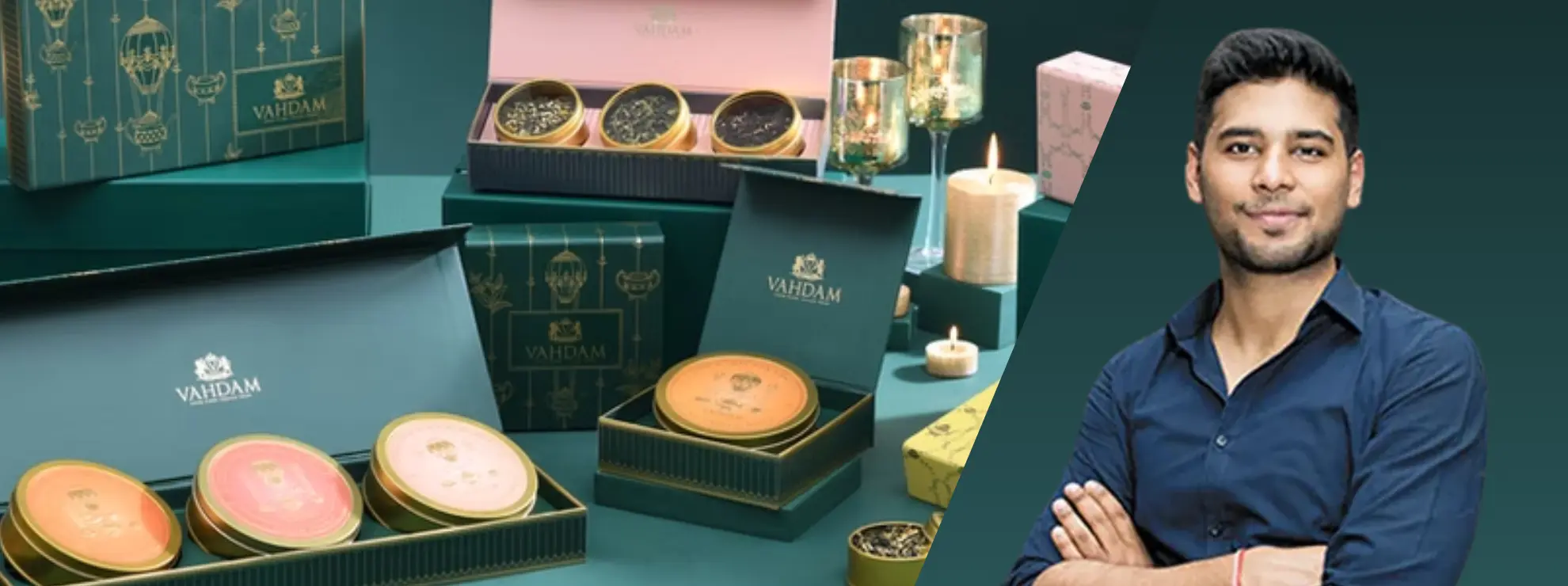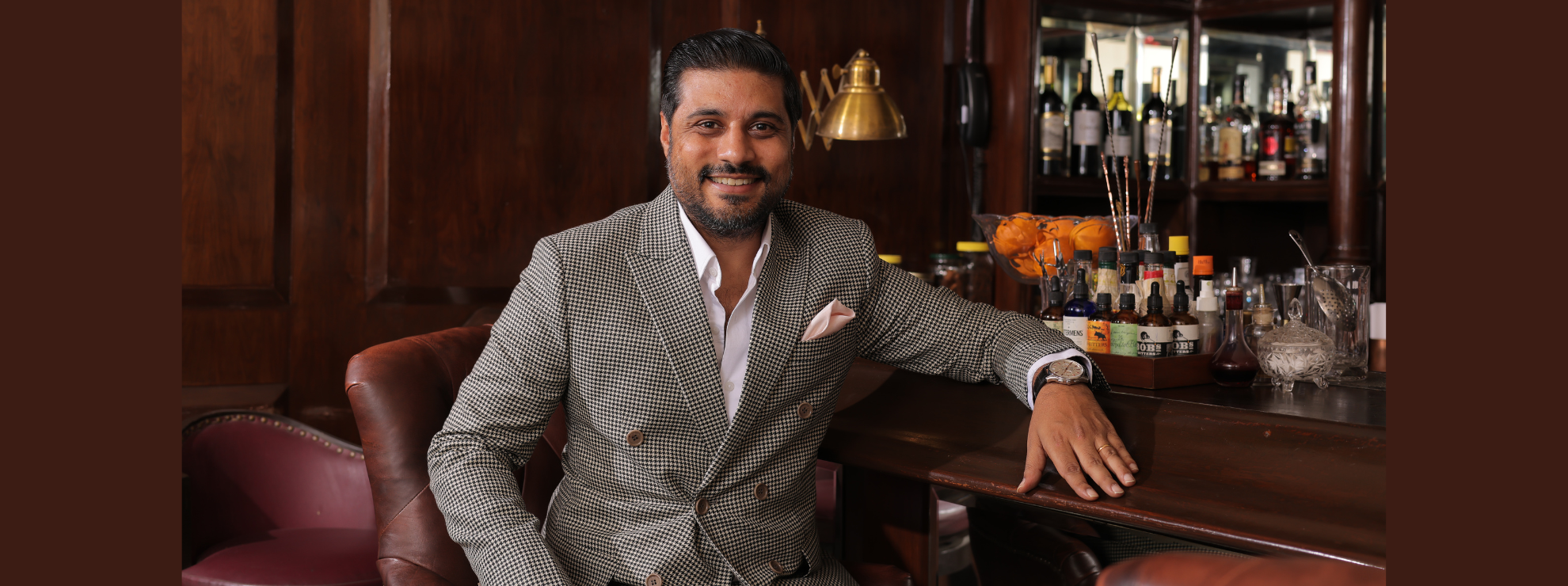(January 4, 2025) The lives of the one-percenters in the Bay Area, Manhattan and Malibu are steeped in turmeric milk, ashwagandha and the finest Darjeeling tea. As the world’s wealthiest people, who set the trends for everyone else, now start their day with sandalwood incense and yoga, one might imagine that Indian brands have had some say in the matter. That couldn’t be farther from the truth.
India is one of the world’s largest exporters of teas and spices, and around 80% of the global turmeric production happens right here, but shockingly, not a single Indian brand was a household name in the US or Europe even ten years ago. “India is this land of magical ingredients—we’ve been using turmeric for 5,000 years—yet London is selling more Darjeeling tea and Starbucks is selling more chai than any Indian brand,” said Bala Sarda, founder, Vahdam India, in an interview with Forbes.
View this post on Instagram
Made in India—for the world
However, when the Global Indian, who comes from a legacy of tea planters and exporters, travelled the world, he found that even premium brews in the US and Europe paled in comparison to the fragrant leaves that came straight from the estate and to his cup back in India.
“I have always had the entrepreneurial bug but I didn’t want to get into the tea business. It looked very boring to me and extremely commoditised,” he told NDTV. “A part of my family business was also about bulk exports, and there was no real value addition. But I wanted to create that value and do something of my own, and I have done that before starting Vahdam.” When the time came to get serious and pick a path, he realised the best opportunity lay at home—in tea. “There was an incredible opportunity to create value,” Sarda admits.
It led to the foundation of Vahdam India, which he describes as ‘Made in India for the world’. Named after his father, Madhav, Vahdam specialises in a range of India’s finest teas, from Darjeeling, Assam, and the Nilgiris. They started out with the classics and eventually branched out into the holistic wellness space. Vahdam’s top seller is the turmeric tea range, and the company now also offers adaptogens like tulsi and mushroom. Why is Vahdam special? The company runs on a vertically integrated model, doing away with the “broken, highly fragmented supply chain” that is currently the Indian norm, Bala Sarda explained.
View this post on Instagram
Starting out
Setting up a business in the tea industry wasn’t easy, especially for Bala Sarda, who is a fourth-generation entrepreneur in the bulk tea export business and had a legacy to live up to. Also, he knew from the start that Vahdam would be a global brand, catering to Western consumers. And the problem was that global consumers had very little faith in the quality of Indian brands.
The starting point for Vahdam was the supply chain. Bala Sarda began by cutting out the middle man—and there were many. The tea supply chain process has eight stages: the leaf is grown and picked in tea estates, then sent to factories where withering, rolling, fermenting, drying, blending, and packaging all take place. From there, the tea is sent to auction houses, where distributors pick it up and deliver it to retailers. By the time it finally reaches the consumer, even the most premium teas have aged and lost their fineness. Moreover, machine processes also break the delicate longer leaves, diluting the quality even more.
“I was wondering, how do you reimagine the supply chain?” Sarda said in an interview with NDTV. “Tea has a longer expiry period, but the freshness does go away. Can we think of tea as a perishable product?” That’s where Vahdam begins—they source tea directly from over 150 estates across the country. “We sample hundreds of teas every week, and we have our own parameters around taste, aroma, and leaf size,” he explains. “There is a lot of work done to ensure freshness—we source direct and have our own distribution centres in our various markets.”
Cutting-edge tech for the world’s best tea
Vahdam India was founded in 2015, and the first four years were spent setting up the systems that ensured quality. This involved the best technology in the market and also the highest-grade leaves. Tea sourced from the estates comes straight to the Vahdam factory in the NCR region. “We are now one of the better factories in the world in this category; we are a BRC-certified, A-grade facility,” Sarda said.
In the warehouse itself, hundreds of workers sit wearing hairnets and masks in a temperature-controlled, highly sterile atmosphere. Tea leaves are cleaned and vacuum packed to ensure freshness, and stored in the warehouse. Sarda’s own eye is so well-trained that he can identify tea leaves at a glance. “See the golden tips,” he says, clutching a handful of leaves. “That’s from Assam.” The longer leaf teas are cleaned by hand; they don’t want to risk them being broken in machines. Instead, Vahdam’s employees sort through the leaves by hand, carefully removing the stalks. “In most modern brands, you find stalks as part of the product, but they make the tea bitter,” he explains.
Sarda’s idea worked—and how! Today, Vahdam supplies to over 100 countries and is sold across the retail spectrum, from Walmart to Bergdorf Goodman. Celebrity endorsements also came pouring in, from Oprah Winfrey to Ellen DeGeneres, Drew Barrymore, and Martha Stewart.
Scaling up
Taking the best of India to the world includes spices just as much as it does tea. “We are one of the world’s largest producers and exporters of spices,” he explains. “So we started with tea, but the vision has grown to include herbs and spices.” Vahdam India now has a range of spices, launched in collaboration with celebrity chef Vikas Khanna.
This also gave them a chance to reach the new-age customer, who is health conscious and interested in products that are sustainably and ethically sourced. “We launched a range of turmeric wellness teas, which are among our best-selling products,” Bala Sarda says. “We also have ashwagandha and adaptogens like tulsi and mushrooms, as well as a lot of herbs that people don’t know about. Adaptogens, which are one of the latest buzzwords in the new age wellness industry, are actually age-old traditions. They include certain plants and mushrooms that help the body manage stress, anxiety, fatigue and overall well-being. Ashwagandha and ginseng are among the most popular adaptogens worldwide, along with tulsi (holy basil) and, more recently, mushroom strains like reshi.
“It is a super set of even Ayurveda,” Sarda says. “Ayurveda, yoga, teas, everything we are talking about are basically subsets… what we do is that, being from this country (India), with the experience and lineage we have, we intrinsically understand what is good.” That said, Vahdam works with doctors, experts, and tasters in product development, which now includes a wide range of wellness teas and tea tisanes. “I still spend 30 to 40 percent of my time developing and tasting the product.”

The D2C model has helped Vahdam grow by leaps and bounds; the company was valued at over Rs 2 billion. However, there’s no point in calling oneself a sustainable, ethical company if this doesn’t filter down to the people who need it most—the growers and the pickers. In 2018, on their third Founders’ Day, the company launched TeachMe, a flagship social initiative in which they allocated a minimum of one percent of the company’s revenue to educating the children of the plantation workers. “We have been able to touch the lives of over 11,000 children,” Sarda said.
All this means a long work day, which Bala Sarda doesn’t seem to mind. He begins early, with a cup of black coffee followed by a couple of hours at the gym. “I’m a fitness enthusiast and love weight training. It’s the perfect way to energise the body and cultivate a sense of mindfulness before tackling the day ahead,” he told YourStory. However, since the US now holds over 50% of Vahdam’s market, the days are long and hectic, often extending late into the night with phone calls around the world. He’s happy to put in the hours though, driven by two things: his deep love for tea, which grew out of the estates where he spent his childhood, and the drive to take the best of what India offers to the world. “Our vision is to take the best of India to the world under a proud, ethical homegrown model.”
Read a similar story of Manish Tiwari, aiming to celebrate Indian brands.





